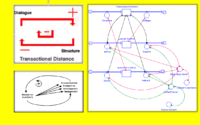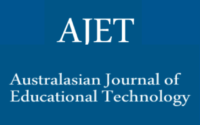
Distance Education: A Review of Literature [Circa 1994]
This document provides an overview of the current literature on distance education. A historical perspective and definitions associated with distance education are presented in the first section. The following theories are also discussed: independence and autonomy; industrialization of teaching; and interaction and communication. A synthesis of existing theories and a theoretical framework for distance education […]














